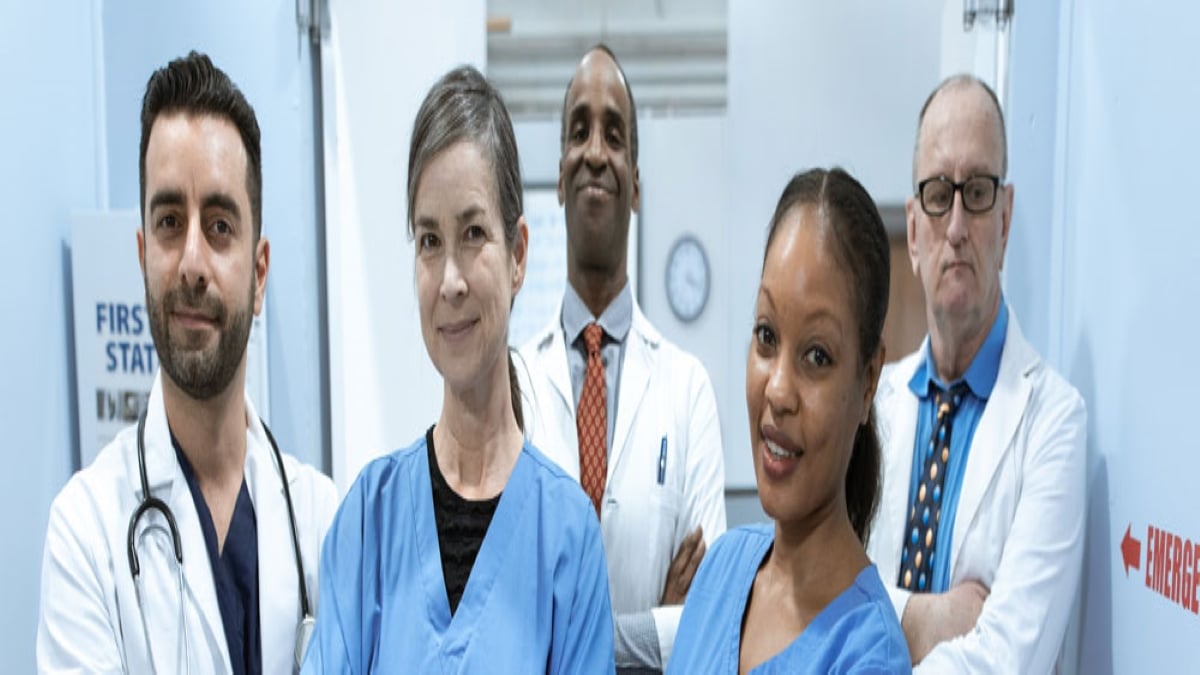Another summer is upon us. As you enjoy the warm days and break from classes, let’s consider another commonly encountered interview question. This one is almost certain to pop up during your interview conversation.
What would you do if you couldn’t be a doctor?
I’ve seen this question take many an applicant aback. When asked this question during my interviews I recall being confused and wondering whether there was a hidden meaning. Here’s what would go through my mind: “Why do they want to know what I’d do if I wasn’t able to be a doctor? Are they somehow trying to see if I’m really serious about my career choice? Is it appropriate to say there is no other option and that becoming a physician is the only reality for me?”
Medical
Learn about medicine and how to become a physician in our articles for pre-medical students (including the MCAT), medical students, resident physicians, and practicing physicians.
20 Questions: Otha Myles, MD [Infectious Disease]
Otha Myles, M.D. is the Deputy Chief of Epidemiology and Threat Assessment at Walter Reed … Read more
20 Questions: Lawrence Terra, MD [Reproductive Endocrinology]
After starting out as a failed journalism major, Dr. Lawrence Terra wound up graduating Phi Beta Kappa from a prestigious midwestern university with a B.A. in Psychology. He graduated with High Honors from an University of California medical school and now pursues his original dream of journalism through a popular blog.
He completed a four-year OB/GYN Residency and then went on to a Fellowship in Reproductive Endocrinology and Infertility (REI). He has worked with many of the pioneers in the field of In-Vitro Fertilization (IVF). Dr. Terra is currently in full-time private practice as the Medical Director of an IVF program in Southern California. He is a sought-after lecturer, giving educational talks to hundreds of physicians and medical students annually. Dr. Terra is a Board-Certified Fellow of the American College of Obstetrics and Gynecology and an active faculty member at two medical schools.
He recently sat down with SDN to give us a glimpse of life as a Reproductive Endocrinologist.
Pre-Med Preparation: Getting Letters of Recommendation
In my last article for SDN, I addressed the importance of physician shadowing and clinical experience. This time, I want to focus on recommendation letters.
Recommendation letters are used by admission committees and are part of your application. To get good letters, participation in extracurricular activities and positive interactions with faculty and physicians are important.
Admissions committees see on the application what activities you have listed, but recommendation letters tell them how you interact with people, what type of person you are, and (hopefully) stress your good qualities and support your application to medical school.
The Successful Match: The Importance of Mentoring
In researching our book, we asked applicants what they found most difficult about the residency application process. A number of applicants commented on the same issue. “There’s so much conflicting information out there. How do you know what to believe? Who should you listen to?”
Applicants with mentors have a decided advantage. A joint committee of the National Academy of Sciences, the National Academy of Engineering, and the Institute of Medicine described a mentor as “someone who takes a special interest in helping another person develop into a successful professional.”¹ In defining the term, the committee described a fundamental difference between mentoring and advising.
Pre-Med Preparation: The Importance of Physician Shadowing
Physician shadowing, in my opinion, is one of the best extracurricular activities in which a … Read more
20 Questions: John T. Sinnott, MD, FACP, Infectious Disease
John T. Sinnott, MD, FACP is the Director of the Division of Infectious Disease and … Read more
20 Questions: Michael Rack, MD, Sleep Medicine
Michael Rack, MD grew up in Southern California. He graduated from the University of Iowa … Read more
20 Questions: Dennis Stokes, MD, MPH, Pediatric Pulmonologist
Dr. Dennis C. Stokes is a Professor of Pediatrics and Chief of the Program in … Read more
Raves, Rollin’, & Roofies: Your Guide to Club Drugs
Updated December 8, 2021. The article was updated to correct minor grammatical errors. Scenario An … Read more
Special Master’s Program: Interview with Robert Banks, PhD
Dr. Robert Banks is a professor and course director of medical physiology in University of … Read more
Clinical Clerkship Clues: Emergency Medicine
Are you suffering from roundsitis? Hypercaffeinemia? Overnight call adjustment disorder? Scutworkophobia? My friend, there is … Read more
The Successful Match: Oral Communication Skills
By Rajani Katta, MD and Samir P. Desai, MD Every aspiring physician knows the importance … Read more
Highs and Lows: Bipolar in Medical School
While many medical students struggle to grasp the complexity of mental illness and its management, … Read more
Clinical Clerkship Clues: Family Medicine
For many medical students the family medicine clerkship is one of the more enjoyable rotations … Read more
Family Medicine: Challenges for the Solo Physician
In the eyes of many medical students, the family physician is a solo physician with … Read more
Dealing With Conflict on Clinical Rotations
Nearly every medical student, at some point during training, will have a negative encounter with … Read more
20 Questions: William Baker, MD, Anesthesiologist
Dr. William Baker is an anesthesiologist working in Birmingham, Alabama. Dr. Baker was in private … Read more
20 Questions: David C. Hilmers, Med-Peds, Former Astronaut
David C. Hilmers, MD, EE, MPH, is an assistant professor at Baylor College of Medicine … Read more
20 Questions: David Russo, DO, Pain Medicine and Physiatry
Recently The Student Doctor Network interviewed David Russo, DO, who specializes in interventional pain medicine … Read more












